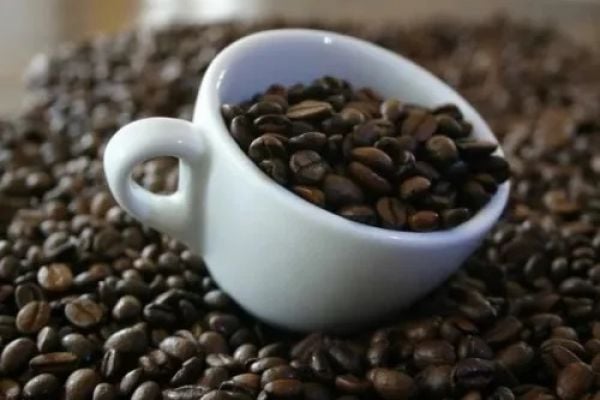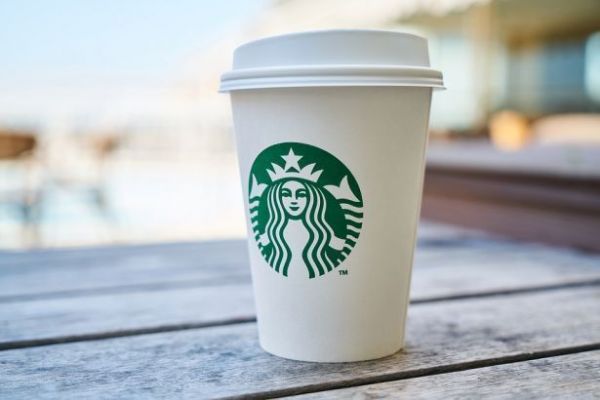Hospitality Ireland presents a round-up of the latest global restaurant news.
Yum China Warns Quarterly Profit To Take 50% To 60% Hit Due To Delta Variant Of COVID-19
KFC operator Yum China Holdings Inc said on Tuesday September 14 that its adjusted operating profit would take a 50% to 60% hit in the third quarter as the spread of the Delta variant of COVID-19 in China led to restaurant closures and "sharply reduced sales".
US-listed shares of Yum China fell 3% in extended trading.
The company said over 500 of its restaurants in 17 provinces were closed or offered only takeaway and delivery service at the peak of the Delta variant's outbreak in August, leading to a mid-teens percentage drop in same-store sales.
"While the outbreak has subsided in recent days and restaurant traffic is gradually recovering, our operations continue to be heavily impacted," Yum China said, adding that it expects a recovery in same-store sales "to take time".
The company said its profit margins were also being pressured by higher commodity prices, wage inflation and an increase in promotions.
Wagamama Owner Flags Labour Shortages Even As It Forecasts Higher Profit
Wagamama owner Restaurant Group forecast an increase in 2021 profit on Wednesday September 15 after it reported a first-half profit, but challenges around labour shortages and supply chain constraints flagged by the company sent its shares down 2.8%.
Pent-up demand from people stepping out after pandemic-related lockdowns eased and cost cuts have helped the company, but British retailers, cafés and restaurants are struggling with a shortage of drivers and food processing staff.
"Whilst there are some well documented sector challenges to navigate in the short-term, particularly around labour availability and supply chain, we believe the group is well positioned for the long-term," CEO Andy Hornby said.
The labour shortages are not unique to Britain, but Brexit made matters worse, industry groups say, with an exodus of European drivers.
Restaurant Group reported an adjusted core profit of £11.2 million for the 27 weeks ended July 4, compared with a loss of £18.3 million last year.
Fast-food giant McDonald's, chicken restaurant chain Nandos and KFC have all pulled some items off their British menu following the shortages, and the country's leading employers are pushing the government to take action.
Restaurant Group's shares slipped to a session low of 117.8 pence in London by 0749 GMT on Wednesday September 15.
UK Inflation Hit Nine Year Peak In August Fulled By Restaurant Prices Rebound
Britain's inflation rate hit its highest in almost a decade last month after a record jump that was largely fuelled by a rebound in restaurant prices which were artificially pushed down a year ago by government subsidies.
Consumer prices in August rose by 3.2% year-on-year, the highest annual inflation rate since March 2012 and up from 2.0% in July, the Office for National Statistics said.
Statisticians said the one-off effect of the government's "Eat Out to Help Out" scheme, which briefly offered diners a discount on meals to help a sector hit by the pandemic, would vanish from next month's data.
But the Bank of England is still braced later this year for inflation to hit 4% due to higher energy prices and pandemic bottlenecks which it expects will fade over the course of 2022.
August's 1.2 percentage point rise in the annual rate of inflation marked the sharpest increase since detailed records started in 1997. None of the 37 economists polled by Reuters had expected such a strong reading, with the median forecast instead pointing to consumer price inflation at 2.9%.
"Much of this was driven by the heavy discounts offered under the 'Eat Out to Help Out' Scheme last summer. That said, there are also signs that inflationary pressures are increasingly broad based across many sectors of the economy," said Hugh Gimber, global market strategist at JP Morgan Asset Management.
The ONS also pointed to anecdotal evidence that shortages of supply chain staff and rising shipping costs fed through into food prices last month, which recorded their biggest monthly rise for any August since 2008.
Higher oil prices, global shipping problems and shortages of components for some goods such as motor vehicles have contributed to rising inflation in many countries including Britain.
Last month euro zone inflation hit a 10-year high of 3%, although data on Tuesday September 14 showed US underlying consumer prices increased at their slowest pace in six months, suggesting inflation there may have peaked.
British government bond yields rose after Wednesday September 15's data as investors nudged up their expectations for BoE interest rate increases next year.
A Reuters poll of economists last week suggested the BoE will raise borrowing costs by end-2022, earlier than previously thought, while markets price in a first increase by May and a further rise in December.
In August of 2020, the government offered diners a 50% discount of up to £10 per head on meals to kick-start the economy. A year later, the absence of these discounts meant restaurant prices comprised more than half of the 1.2 percentage point rise in headline inflation last month.
As with July's unexpectedly weak reading, economists said August's surge in inflation was unlikely to unduly worry BoE policymakers who are weighing an early end to stimulus launched at the height of the COVID-19 pandemic.
"[These] effects are largely transitory and there is little policy makers can do to stem this cost of living crunch," said Jack Leslie, senior economist at the Resolution Foundation think tank.
However, the central bank faces a trickier task in judging whether labour shortages may create longer term pressures. Last month, half of the BoE's policymakers judged that some basic pre-conditions for a rate rise had been met, although none thought there were sufficient grounds to tighten policy yet.
British producer price data on Wednesday September 15 showed more persistent price pressures in the pipeline. Both manufacturers' raw material costs and the prices they charged to customers rose at the fastest rate since late 2011, with oil prices soaring 50% over the past year.
Separate ONS data showed British house prices in July were 8.0% higher than a year before, a much smaller increase than the 13.1% rise in June, the last month for buyers to take full advantage of a temporary tax break on property purchases.
Coffee Chain Dutch Bros Valued At Over $5bn In NYSE Debut
Shares of coffee chain Dutch Bros Inc, which is backed by private equity firm TSG, rose over 41% in their stock market debut on Wednesday September 15, valuing the coffee chain at $5.36 billion.
Shares opened at $32.5, compared to the initial public offering price of $23 per share.
Dutch Bros was founded in 1992 by brothers Dane and Travis Boersma, third-generation dairy farmers who were forced to leave the business due to industry-wide disruption. They started experimenting with coffee beans and began selling espresso from a pushcart by the railroad tracks in Grants Pass, Oregon, which is still the company's headquarters.
The coffee chain sold 21.1 million shares in its IPO on Tuesday September 14, raising approximately $484 million. The IPO was priced above Dutch Bros' earlier targeted price range of $18 per share to $20 per share.
Travis Boersma holds majority voting power in the company after the IPO. TSG, which bought a minority stake in the company in 2018 for an undisclosed sum, holds about 22.2% of Dutch Bros.
The company bought its first drive-thru in 1994 and has expanded to 470 drive-thru locations across 11 states. Dutch Bros and its franchise partners employ more than 16,500 people.
For the six months ended June 30, the company's franchising and other revenue rose 13% to $47.1 million compared to a year earlier, when it saw a decline in same-shop sales due to the COVID-19 pandemic and the west coast wildfires.
BofA Securities, JP Morgan and Jefferies were the offering's lead underwriters.
News by Reuters, edited by Hospitality Ireland. Click subscribe to sign up for the Hospitality Ireland print edition.









